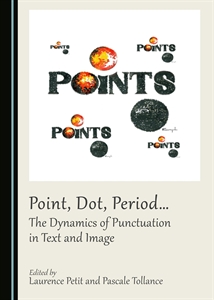Jennifer K Dick, yep, me, is running around giving talks, reading, hosting.
So where can you find me?
25 May 2023: 11am session: I will be speaking on Anne Carson--as the program says, Jennifer K Dick talk: “De-Stabilizing the Known / Restauring the Unknown: Reading Anne Carson through the Lens of Quantum Physics (and Dark Matter)” at the Anne Carson and the Unknown: Explorations in 21st Century Experimental Poetry Conference. For the entire programme, links to watch online, go to:https://uclouvain.be/fr/instituts-recherche/incal/ecr/evenements/anne-carson-and-the-unknown-explorations-in-21st-century-experimental-poetry.html ABSTRACT: Perhaps it is not the unknown in Carson, but rather that one “knows” only in an instant before something changes the outcome: the uncertain, the flux returns—i.e. Schrodinger’s paradox. In this manner, Carson inhabits the transformatory space of scientific theoretical practice, ever striving for deeper knowledge where any response to a question is immediately undermined by another query. As Carson’s own admiration for Jacques Lacan’s declaration reveals: “The reason we go to poetry is not for wisdom, but for the dismantling of wisdom” (Carson/Aitkins interview). I propose to borrow from Kathryn Schaffer and Gabriela Barreto Lemos’s assessment of how quantum physics can provide ideological and theoretical tools for the arts and humanities. I will study select passages from Carson’s books where the vacillating waves of plots intersect with a potential development in consciousness for a character, consciousness related to their being part of, though often felt as outside or left of center, or of events, societies, communities, relationships and most of all a secured, fixed sense of self-understanding (self knowledge).... [truncated abstract here--full version on the conf website]
27th May 2023: starting from 15h30: I will read a text as part of the
open-forum event organized by the amazing and dynamic author Bénédicte Heim. The theme is about aging, and overall the event will be in French.: Dans le cadre de l'exposition " Faire son âge " qui se tiendra à partir du 24 mai jusqu'à la fin du mois de juin dans la galerie de la Reine Christine, au 12 rue des Patriarches 75005 (métro Censier-Daubenton), paroles, art, etc autour du vieillissement le samedi 27 mai à partir de 15h30.
30 May 2023: 19h30 I am hosting the next IVY WRITERS PARIS evening with Susan Schultz and Françoise de LaRoque at Delaville Café, 34 bvd bonne nouvelle. Full info on the Ivy blog at: https://ivywritersparis.blogspot.com/2023/05/ivy-le-30-mai-avec-s-schultz-et-f.html
3 juin 2023: 9h30 I am giving another conference presentation: Jennifer K. DICK (Université de Haute-Alsace, Mulhouse) : "Resisting Transmission: Against a poetry of communication?" at the 62nd annual SAES Congrès in RENNES on Transmission(s) in Atelier 14: Poets and Poetry. https://congres2023.saesfrance.org/programme-scientifique/programme-par-atelier/ ABSTRACT:
As the globalized world leans—as if in a kind of anglicized linguistic immigration—towards Twitter and Insta-poetry, to the directive statement and easy access in a kind of all-for-one English as dominant language, a second poetry and poetics has been slowly emerging and growing in force: that of the multilingual author. These writers’ works might be published as “English” or “American” but their pages are dotted by a wide array of other languages, languages that often absorb, cover, and bury the English. The books I am addressing here are by authors that refuse to self-translate. For some, this poses no real barrier to being interpreted as their second and third languages share roots with English. But for others, writing in radically different alphabets or where non-bilingual readers will not be able to grasp the semantic meaning of the words, the “transmission” (in a habitual sense of reading poetry) finds itself at the end of a dead end street. In this case, the foreign language(s) often acts as extra-lingual expression, pushing these works into boundary zones between poetry and visual art or performance, or poetry and music (zaum-like sound poetry practices).
These works are a reckoning and recognition of linguistic and cultural otherness within perceived unified nations and literary traditions. As such, exploration and study of these authors provide essential tools for deeper reflections on notions of transmission of meaning in poetry and literature. They also demand perhaps that we rethink our old definitions of the verb “to read”.6 June 2023: 19h30 Back in Paris it is already time for me to host another Ivy night. This one is the final of our spring 2023 season, and will feature visiting American author and translator Cynthia Hogue alongside Paris local authors and translators Vincent Broqua and Virginie Poitrasson. at Delaville Café, 34 bvd bonne nouvelle. A pre-announcement for this is already up on the Ivy blog at https://ivywritersparis.blogspot.com/2023/05/ivy-le-30-mai-avec-s-schultz-et-f.html






